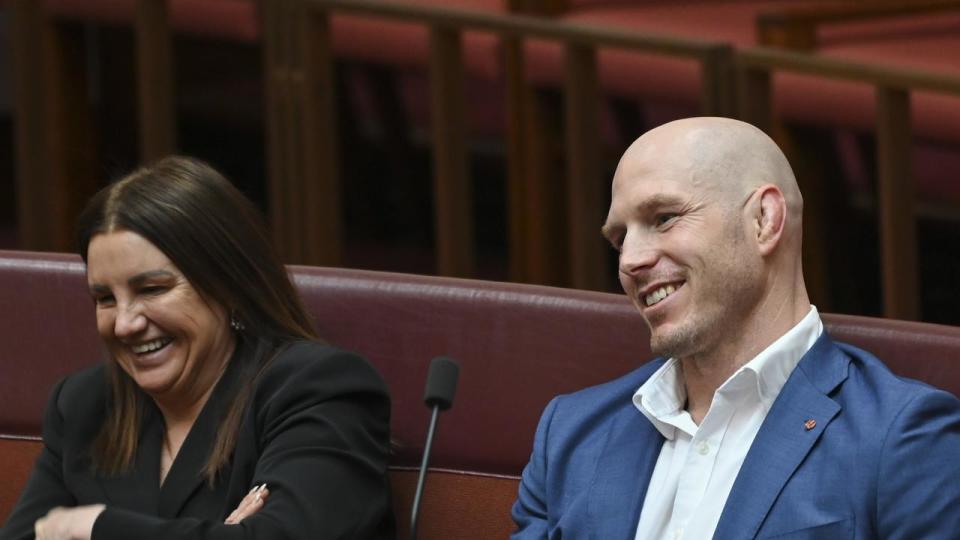Miners issue warning on business closures

The proposed shake-up to Australia’s workplace laws is “fundamentally flawed” and risks roping in “millions of Australian workers”, the mining lobby has claimed.
Ahead of Senate hearings into the government’s second tranche of industrial relations changes, the peak resources sector body, the Minerals Council of Australia (MCA), condemned the reforms, arguing they would inflict “immense harm” on the Australian economy.
The MCA’s criticism, detailed in its submission to the inquiry, centres on the government’s efforts to close a labour hire “loophole” as part of an omnibus bill introduced to the parliament in September.
The “loophole” exists when an employer and employees have negotiated a workplace agreement to a particular rate of pay for particular work, but the employer subsequently brings in other workers through labour hire to undercut the agreed rate of pay.

Under the proposed changes, employees, employers or unions will be able to apply to the Fair Work Commission to require the labour hire workers to be paid at least the wages in the workplace agreement.
The workplace umpire would subsequently determine if it was “fair and reasonable” to order labour hire workers to be paid the same direct employees.
In making this decision, the Commission would need to consider the workers are providing a service rather than simply providing their labour, however, it would not be bound by this.
But MCA chief executive Tania Constable will tell the inquiry that the proposed labour hire laws are much broader than the government has let on and risk capturing any business that provides workers, services or skills to another company, potentially including millions of workers.

“This scenario will apply right across the economy – every sector, every industry. It is a recipe for disaster,” Ms Constable will say.
“The proposed changes are not ‘modest’ or ‘housekeeping’ and do not apply to a limited number of businesses. They create a complex maze of obligations and new legal hurdles.”
Ms Constable will also accuse the government of jeopardising the nation’s energy transition by saddling the industry with laws that would ultimately make mining more costly and less productive.
“At a time when Australia could be at forefront of delivering a low emission future the government is proposing to introduce a massive impediment and roadblock on the opportunity,” she will say.

“Rather than building a new innovative society for the future, Australian businesses will be spending their days studying law books and appearing in court trying to work out whether we can even start.”
The MCA also claims small businesses that provide contract services will be competing on wages and entitlements with much larger providers, subsequently rendering them unviable.
Alongside changes to labour hire, the proposed reforms will also include making it easier for casual workers to convert to permanent roles, increasing penalties for wage underpayments, and regulating platform or ‘gig’ work.
Separately, the Business Council of Australia, which represents some of the nation’s largest corporations, including Commonwealth Bank and Qantas, is also expected to appear before the Senate inquiry on Tuesday.

Speaking before his committee appearance, the council’s chief executive Bran Black called on the government to split the legislation so the less controversial elements of the legislation, such as increased penalties for wage theft, can pass.
“The BCA supports the request from the Senate crossbench to separate these measures and bring them forward for earlier consideration by the parliament,” Mr Black said.
The push echoes similar calls from influential Senate crossbenchers David Pocock, Jacqui Lambie and Tammy Tyrell to pass the uncontroversial elements of the legislation before year’s end.
On Monday evening, the crossbenchers ramped up their bid, proposing to use four private senators’ bills on the “urgent workers safety measures” and legislate them by January 1.

The measures include a proposal simplification of workers’ compensation for first responders with post-traumatic stress disorder, the expansion of the Asbestos Safety and Eradication Agency, measures to assist small business with insolvency and enhanced protections against employees subject to family and domestic violence.
Warning against the legislation, the Business Council claimed the change would be confusing, complex and expensive, during a cost of living crunch.
“It is now clear that the Bill will add to uncertainty and the cost of living at a time when Australian families can least afford it, while undermining the job security of the very people it purports to protect,” Mr Black said.
The government and the union movement have previously rejected bosses’ warnings, arguing against claims of widespread economic damage and rising unemployment.


